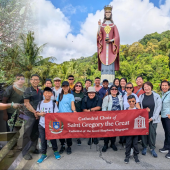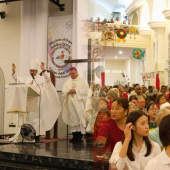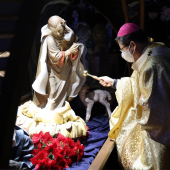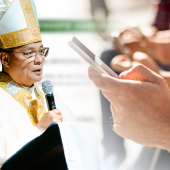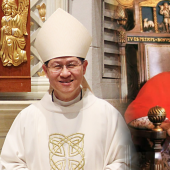Following Singapore, Malaysian Archdiocese Urges Visits to Recognized Church Sites, Not Naju
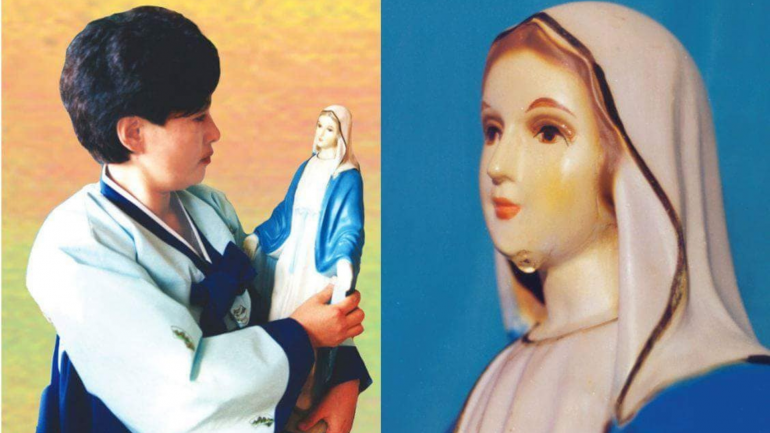
A few days after the Archdiocese of Singapore issued a stern warning advising Catholics not to visit the controversial Marian shrine in Naju, South Korea, under penalty of excommunication, the Archbishop of Kuching, Malaysia, has likewise urged Catholics in his archdiocese to visit only designated churches and recognized Catholic pilgrimage sites instead of Naju.
According to Today’s Catholic, the official publication of the archdiocese of Kuching, faced with queries from Catholics about joining pilgrimages to the site where so-called miracles are said to have occurred, Archbishop Simon Poh of Kuching, Sarawak, contacted Archbishop Emeritus Hyginus Kim of Gwangju, where Naju is located.
“Archbishop Emeritus Kim has confirmed that the Archdiocese of Gwangju does not permit Catholics to visit Naju,” Today’s Catholic reported on November 4.
According to media reports, the alleged miracles in Naju date back to 1980, when Ms. Julia Kim (also known as Julia Youn), the site’s purported visionary, claimed she was miraculously healed of terminal cancer. In 1982, she claimed to have seen a vision of Jesus with His Sacred Heart bleeding because of people’s sins. She further claimed that a statue of the Blessed Virgin Mary, owned by her, began to weep on June 30, 1985.
The Archdiocese of Gwangju, which has jurisdiction over the area, conducted investigations into the claims and eventually rejected them. The Catholic Bishops’ Conference of Korea also dismissed the alleged miracles associated with the shrine.
In its report, Today’s Catholic made a reference to the notice of the Chancery Office of the Archdiocese of Singapore dated October 31, prohibiting Catholics from visiting the Naju site. “Catholics are not allowed to join activities or pilgrimages to Naju as this entails an automatic excommunication,” Today’s Catholic said, referring to the Singapore Archdiocesan notice.
“Archbishop Simon Poh invites all Catholics to become Pilgrims of Hope,” the archdiocese’s publication added. “For the remaining two months of this Jubilee Year, Catholics are instead encouraged to make pilgrimages and pray at designated churches in Malaysian Arch/Dioceses, as well as recognized Catholic pilgrimage sites.”
Radio Veritas Asia (RVA), a media platform of the Catholic Church, aims to share Christ. RVA started in 1969 as a continental Catholic radio station to serve Asian countries in their respective local language, thus earning the tag “the Voice of Asian Christianity.” Responding to the emerging context, RVA embraced media platforms to connect with the global Asian audience via its 21 language websites and various social media platforms.









